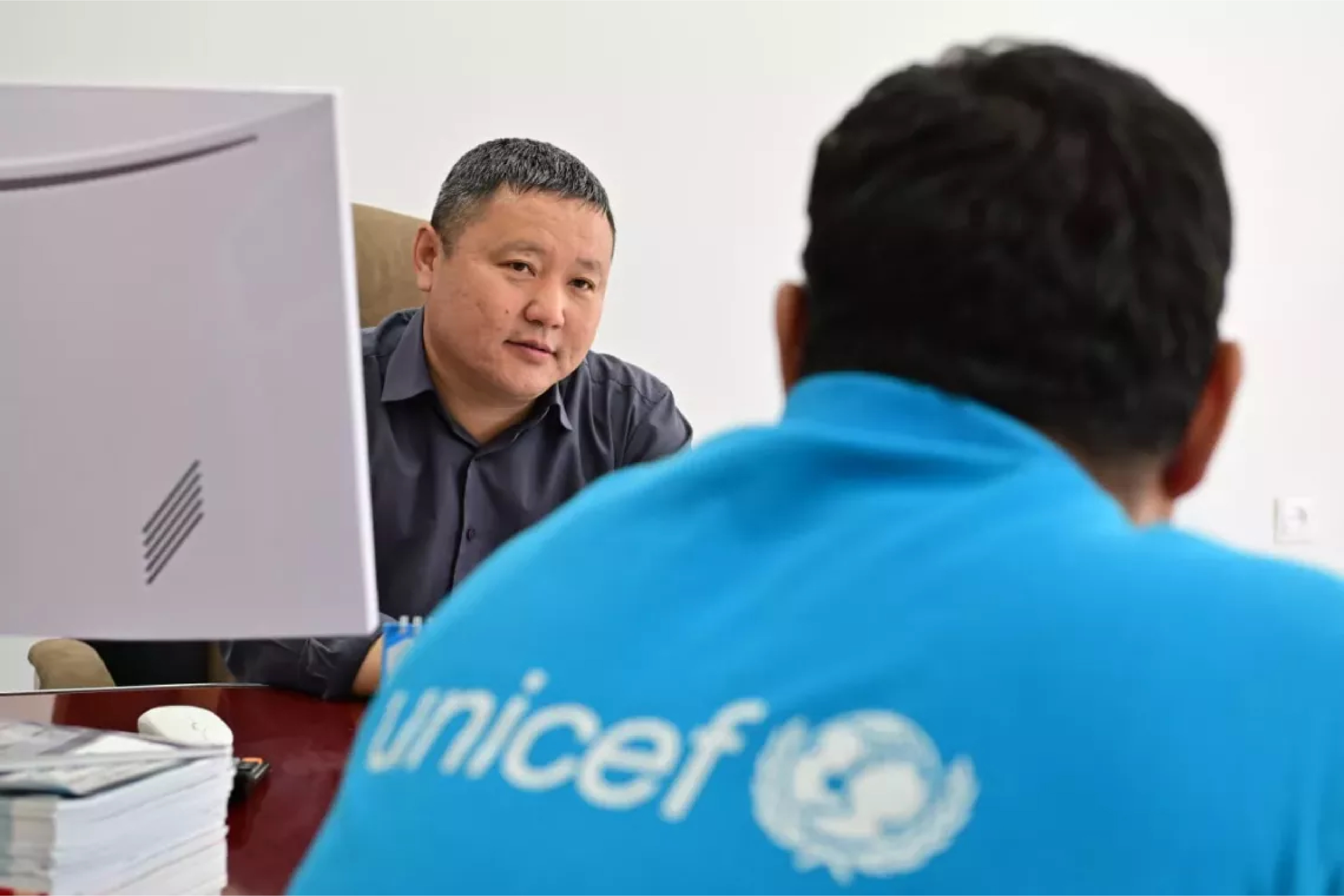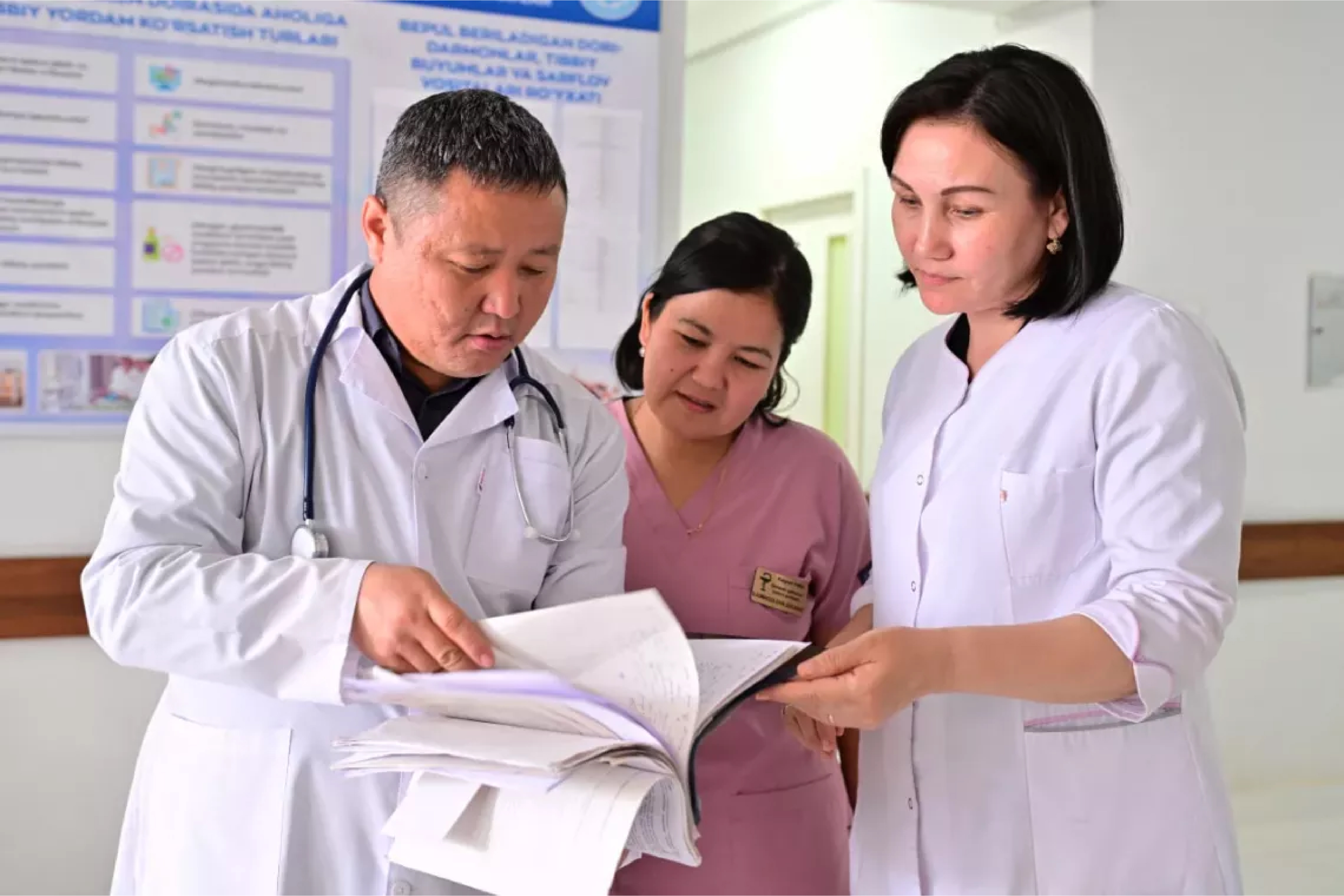

The initiative is helping to realize the promise of universal healthcare access.
Access to timely health care has always been a challenge in remote Kegeyli district in Karakalpakstan. Despite having four family clinics and six family medical centers in this area, nearly 72,000 people, including more than 20,000 children under 14 heavily rely on one district medical complex for specialized medical care.
This meant long waiting queues for specialists care even during emergency cases. For instance, emergency cases requiring expert consultation often had to wait for specialists to arrive from the regional capital of Nukus, over 30 kilometers away. The wait could last hours, endangering the lives of patients who needed urgent medical attention.
But change is coming to this remote district. A recent effort to bridge the divide in access to health has begun transforming healthcare delivery in rural Karakalpakstan. Deputy Chief Physician Mr. Aralbay Seitjanov talks about changes.

"In 2009, we had 50 doctors who were mainly general practitioners,” explains Deputy Chief Physician Dr. Aralbay Seitjanov. “But even then, we were still isolated from the specialized care only available in Nukus. This meant that seriously ill patients, especially children, were at a significant disadvantage.”
In October 2023, UNICEF provided sets of telemedicine equipment to 6 primary health facilities in Kegeyli district. Each set consists of TV screens, computers, video camera, WiFi router and UPS allowing local healthcare providers to consult with specialists in real time. For instance, a patient sitting in Kegeyli can receive a real time specialist’s advice from the capital city Nukus describing the exact challenges and getting real time answers.
It is simple yet, transformational.
“Telemedicine is not merely about introducing new technology—it’s about equalizing access to quality healthcare for everyone, regardless of their location,” says Maria Vivas Alicea, Chief of Health, UNICEF Uzbekistan.
The solution has come as an innovative approach that bridges the gap between rural communities and advanced medical facilities through technology.
Dr. Seitjanov highlights how this has changed healthcare delivery in the district.
"Now, with telemedicine, we don’t have to wait hours for a specialist to travel here. Within minutes, we can consult top experts in Nukus and soon, we’ll extend this network to leading clinics in Tashkent. This ensures that our rural patients receive the same level of care as those in urban centers."

Telemedicine not only enhances emergency medical care, but also improves the qualifications of medical personnel. Continuous training and teleconsultations have significantly improved their skills, allowing them to provide high-quality care locally.
This development, forms part of the joint United Nations Joint programme "Laying the foundations for people-centred, climate-resilient primary health care and water, sanitation and hygiene practices at healthcare facilities and schools in Karakalpakstan" funded by the UN Multipartner Human Security Trust Fund for the Aral Sea Region. This was possible thanks to the commitment and financial contributions from Uzbekistan, the European Union, Finland, Norway, the Republic of Korea, Germany and Al Waleed philanthropies.
Back at the district clinic, neonatologist Guldarya Dauenova shows how this simple technology is life-saving. “In 2023, we attended 1,058 births some of which required urgent consultation with pediatric specialists. At such moments, every second is worth its weight in gold. Teleconsultations allowed us to save several newborns, eliminating the delay that could have occurred if we had to wait for a specialist to arrive in person.”
“By bridging the gap between rural and urban healthcare services, this initiative is helping realize the promise of universal healthcare access, ensuring that geographic location no longer dictates the quality of care one receives,” Akmal Askarov, First Deputy Minister of Health of Karakalpakstan.
Originally published on www.unicef.org